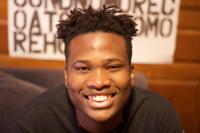
When I started at Yale my mentor asked me a question: “Why should Africans study the seminal works of the western canon”? My answer was, “Because Africans whether by choice, their colonial legacy, or a mixture of both have chosen to live under western political institutions like democracy”. I wanted to understand how western political institutions developed, what challenges are inherent in them and how those challenges have been dealt with. I wanted to understand because; looking at Africa, particularly my country, Zimbabwe, I saw our relatively younger societies falling prey to pitfalls, like tyranny and class war, that Aristotle and Plato wrote about over two thousand years ago. Was the failure of democracy in Africa a result of Africans ignoring the Western canon or the result of absurd cross-cultural translation? If the later, then what should a uniquely African type of democracy look like?
My year in Directed Studies has not given me a solid answer, and I did not expect it to. But it has clarified my vision and helped me to formulate better questions. I know now that the “Western Canon” for all its interconnections, is not one long coherent conversation as I had imagined it to be, the different nationalities of the authors that make it up change its complexion and tone almost as much as the length of time that lies between them. In the same way the way “Africa” has responded to western political institutions is nation specific. In other words, I understand now that I was asking too big a question when I said, “Africa” instead of Zimbabwe.
mandla dube, yc 2019, is a student in timothy dwight college from zimbabwe and a prospective ethics, politics and economics.
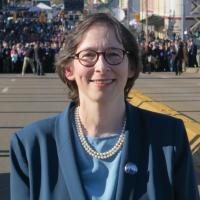 DS was one of the formative events of my life. It taught me how to write (and got me over the fear of writing; pounding out a paper each week was perhaps the most valuable skill I learned in college) and how to read carefully in a way that plays out in my legal scholarship and litigation.
DS was one of the formative events of my life. It taught me how to write (and got me over the fear of writing; pounding out a paper each week was perhaps the most valuable skill I learned in college) and how to read carefully in a way that plays out in my legal scholarship and litigation.
pamela s. karlan, kenneth and harle montgomery professor of public interest law, co-director, supreme court litigation clinic, stanford law school
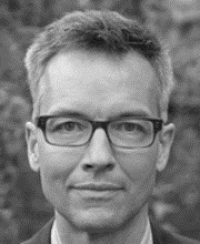 My DS memories, which are nearing 40 years old, remain shockingly vivid. The program was formative. Don’t shout this along the banks of the Charles, but much of what I am trying to accomplish at Harvard stems from that pivotal first year at Yale.
My DS memories, which are nearing 40 years old, remain shockingly vivid. The program was formative. Don’t shout this along the banks of the Charles, but much of what I am trying to accomplish at Harvard stems from that pivotal first year at Yale.
Robin Kelsey
Dean of Arts & Humanities
Shirley Carter Burden Professor of Photography, History of Photography and American art
Harvard University
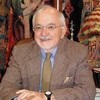
I graduated from a public high school in a suburb of hard coal mining Wilkes-Barre, PA…The effect on me from DS was profound, challenging and ultimately subversive.”
Jonathan Russin ‘59
Managing Partner
Russin & Vecchi pc
washington, DC
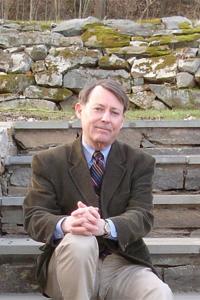 DS was a really important experience for me, and that pretty much qualifies as my understatement of the decade. I came to Yale intending a career in science, most likely astronomy, and was riveted by the breadth and depth of the DS humanities classes. So, instead, I’ve been an architect and planner, a professional practice which engages (I would like to think) a breadth of activities, thought, tradition and innovation, aspiring to that of DS.”
DS was a really important experience for me, and that pretty much qualifies as my understatement of the decade. I came to Yale intending a career in science, most likely astronomy, and was riveted by the breadth and depth of the DS humanities classes. So, instead, I’ve been an architect and planner, a professional practice which engages (I would like to think) a breadth of activities, thought, tradition and innovation, aspiring to that of DS.”
patrick l. pinnell ’71 faia cnu apa
architecture & town planning llc
higganum, ct
 Is it even imaginable that hundreds of former Yale students would be drawn back “home” to New Haven for anything other than DS? There is something about this program, in its intensity and the quality and resonance of its ideas and the shared commitment of its students and teachers, that is unlike any other educational experience at Yale – and perhaps unlike any educational experience that there will *ever* be at Yale… When so many people today question the value of a liberal arts and humanities-centric education, this weekend reminded me that DS and its teachings are not simply the self-gratifying indulgence of an educated elite, but that this is essential intellectual work for all of us, the required close reading for our personal and collective self-understanding and survival. And the academy (I’m speaking to you, Yale!) must not just enable or cautiously defend a DS-type education, but, rather, actively *promote* it as our only hope for survival.
Is it even imaginable that hundreds of former Yale students would be drawn back “home” to New Haven for anything other than DS? There is something about this program, in its intensity and the quality and resonance of its ideas and the shared commitment of its students and teachers, that is unlike any other educational experience at Yale – and perhaps unlike any educational experience that there will *ever* be at Yale… When so many people today question the value of a liberal arts and humanities-centric education, this weekend reminded me that DS and its teachings are not simply the self-gratifying indulgence of an educated elite, but that this is essential intellectual work for all of us, the required close reading for our personal and collective self-understanding and survival. And the academy (I’m speaking to you, Yale!) must not just enable or cautiously defend a DS-type education, but, rather, actively *promote* it as our only hope for survival.
steve tomlin ‘83
entrepreneur
avalon ventures
san diego, california
 That both I and my roommate made Asia a central focus of our twenty-first century careers regardless of our immersion in the Western humanities during Directed Studies is notable. That my own interest in Asia grew organically out of my work in Directed Studies–after reading so much about what Burke and Marx thought about India, I decided to see the place for myself–is a strong argument against the notion that one learns about the West at the expense of the East. I sincerely hope the Directed Studies program endures for another 70 years for many reasons…
That both I and my roommate made Asia a central focus of our twenty-first century careers regardless of our immersion in the Western humanities during Directed Studies is notable. That my own interest in Asia grew organically out of my work in Directed Studies–after reading so much about what Burke and Marx thought about India, I decided to see the place for myself–is a strong argument against the notion that one learns about the West at the expense of the East. I sincerely hope the Directed Studies program endures for another 70 years for many reasons…
daniel brook ‘00
journalist, author of a history of future cities (norton, 2013)
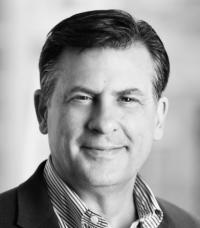 Ezra Pound said it best: “the news in the Odyssey is still news.” DS was a program, as it was introduced to us by Donald Kagan in the fall of 1978, that argued that much could be learned about leadership within the four walls of a classroom if that classroom was what Bart Giamatti called a “free and ordered space” and if the curriculum was designed around many of civilization’s intellectual first movers. And it was also a program that apparently agreed with Sir Kenneth Clark’s famous bit of skepticism about whether “a single thought that has helped forward the human spirit was ever conceived or written down in an enormous room…” No cavernous freshman lecture halls for us–those cramped Connecticut Hall attic classrooms left nowhere for us to hide and always ensured we had what Adler called “The Great Conversation.”
Ezra Pound said it best: “the news in the Odyssey is still news.” DS was a program, as it was introduced to us by Donald Kagan in the fall of 1978, that argued that much could be learned about leadership within the four walls of a classroom if that classroom was what Bart Giamatti called a “free and ordered space” and if the curriculum was designed around many of civilization’s intellectual first movers. And it was also a program that apparently agreed with Sir Kenneth Clark’s famous bit of skepticism about whether “a single thought that has helped forward the human spirit was ever conceived or written down in an enormous room…” No cavernous freshman lecture halls for us–those cramped Connecticut Hall attic classrooms left nowhere for us to hide and always ensured we had what Adler called “The Great Conversation.”
gavin campbell ‘82
managing director
steelbridge capital
chicago, illinois
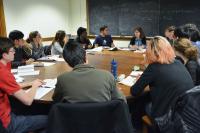
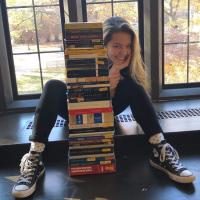

 DS was one of the formative events of my life. It taught me how to write (and got me over the fear of writing; pounding out a paper each week was perhaps the most valuable skill I learned in college) and how to read carefully in a way that plays out in my legal scholarship and litigation.
DS was one of the formative events of my life. It taught me how to write (and got me over the fear of writing; pounding out a paper each week was perhaps the most valuable skill I learned in college) and how to read carefully in a way that plays out in my legal scholarship and litigation. My DS memories, which are nearing 40 years old, remain shockingly vivid. The program was formative. Don’t shout this along the banks of the Charles, but much of what I am trying to accomplish at Harvard stems from that pivotal first year at Yale.
My DS memories, which are nearing 40 years old, remain shockingly vivid. The program was formative. Don’t shout this along the banks of the Charles, but much of what I am trying to accomplish at Harvard stems from that pivotal first year at Yale.
 DS was a really important experience for me, and that pretty much qualifies as my understatement of the decade. I came to Yale intending a career in science, most likely astronomy, and was riveted by the breadth and depth of the DS humanities classes. So, instead, I’ve been an architect and planner, a professional practice which engages (I would like to think) a breadth of activities, thought, tradition and innovation, aspiring to that of DS.”
DS was a really important experience for me, and that pretty much qualifies as my understatement of the decade. I came to Yale intending a career in science, most likely astronomy, and was riveted by the breadth and depth of the DS humanities classes. So, instead, I’ve been an architect and planner, a professional practice which engages (I would like to think) a breadth of activities, thought, tradition and innovation, aspiring to that of DS.” Is it even imaginable that hundreds of former Yale students would be drawn back “home” to New Haven for anything other than DS? There is something about this program, in its intensity and the quality and resonance of its ideas and the shared commitment of its students and teachers, that is unlike any other educational experience at Yale – and perhaps unlike any educational experience that there will *ever* be at Yale… When so many people today question the value of a liberal arts and humanities-centric education, this weekend reminded me that DS and its teachings are not simply the self-gratifying indulgence of an educated elite, but that this is essential intellectual work for all of us, the required close reading for our personal and collective self-understanding and survival. And the academy (I’m speaking to you, Yale!) must not just enable or cautiously defend a DS-type education, but, rather, actively *promote* it as our only hope for survival.
Is it even imaginable that hundreds of former Yale students would be drawn back “home” to New Haven for anything other than DS? There is something about this program, in its intensity and the quality and resonance of its ideas and the shared commitment of its students and teachers, that is unlike any other educational experience at Yale – and perhaps unlike any educational experience that there will *ever* be at Yale… When so many people today question the value of a liberal arts and humanities-centric education, this weekend reminded me that DS and its teachings are not simply the self-gratifying indulgence of an educated elite, but that this is essential intellectual work for all of us, the required close reading for our personal and collective self-understanding and survival. And the academy (I’m speaking to you, Yale!) must not just enable or cautiously defend a DS-type education, but, rather, actively *promote* it as our only hope for survival. That both I and my roommate made Asia a central focus of our twenty-first century careers regardless of our immersion in the Western humanities during Directed Studies is notable. That my own interest in Asia grew organically out of my work in Directed Studies–after reading so much about what Burke and Marx thought about India, I decided to see the place for myself–is a strong argument against the notion that one learns about the West at the expense of the East. I sincerely hope the Directed Studies program endures for another 70 years for many reasons…
That both I and my roommate made Asia a central focus of our twenty-first century careers regardless of our immersion in the Western humanities during Directed Studies is notable. That my own interest in Asia grew organically out of my work in Directed Studies–after reading so much about what Burke and Marx thought about India, I decided to see the place for myself–is a strong argument against the notion that one learns about the West at the expense of the East. I sincerely hope the Directed Studies program endures for another 70 years for many reasons… Ezra Pound said it best: “the news in the Odyssey is still news.” DS was a program, as it was introduced to us by Donald Kagan in the fall of 1978, that argued that much could be learned about leadership within the four walls of a classroom if that classroom was what Bart Giamatti called a “free and ordered space” and if the curriculum was designed around many of civilization’s intellectual first movers. And it was also a program that apparently agreed with Sir Kenneth Clark’s famous bit of skepticism about whether “a single thought that has helped forward the human spirit was ever conceived or written down in an enormous room…” No cavernous freshman lecture halls for us–those cramped Connecticut Hall attic classrooms left nowhere for us to hide and always ensured we had what Adler called “The Great Conversation.”
Ezra Pound said it best: “the news in the Odyssey is still news.” DS was a program, as it was introduced to us by Donald Kagan in the fall of 1978, that argued that much could be learned about leadership within the four walls of a classroom if that classroom was what Bart Giamatti called a “free and ordered space” and if the curriculum was designed around many of civilization’s intellectual first movers. And it was also a program that apparently agreed with Sir Kenneth Clark’s famous bit of skepticism about whether “a single thought that has helped forward the human spirit was ever conceived or written down in an enormous room…” No cavernous freshman lecture halls for us–those cramped Connecticut Hall attic classrooms left nowhere for us to hide and always ensured we had what Adler called “The Great Conversation.”